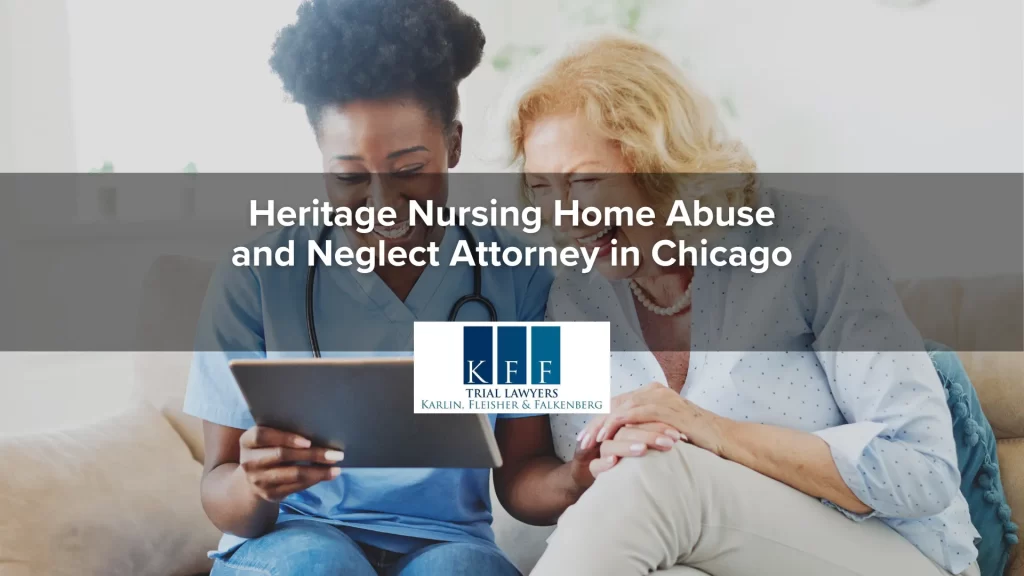
One look at a nursing home facility like the Heritage Nursing Homes near Chicago, and you may think that your loved one will live in an affordable and well-kept complex. With its lounge area, community rooms, and social activities, it feels like you’ve stepped into a family member’s condo, not a nursing home.
While you may be tempted by the photos of smiling residents and the manicured grounds, it pays to remember that many nursing home facilities are for-profit entities with the means available to pay marketing and public relations specialists to maintain their appearance to the outside world.
Unfortunately, many nursing homes don’t live up to the idealized image they portray. According to data from the World Health Organization, at least one in six people over the age of 60 experience some form of abuse in a community setting or nursing home facility.
Family members work hard to make sure that their loved ones are placed in safe and compassionate environments when they need extra help, but abuse does happen. With estimates as high as one in six elderly individuals being subjected to abuse, even the most picturesque places aren’t immune to abuse allegations.
The legal team at Karlin, Fleisher & Falkenberg, LLC knows this firsthand. Our experienced team of attorneys has been committed to pursuing legal justice for nursing home residents for years, and we can help you secure the compensation you need to care for your family member.
Whatever facility your loved one is located at, if abuse is happening, reach out to a team that can help. Give us a call at 312-346-8620 for a free consultation.
Understanding Nursing Home Abuse
To identify abuse, you must first understand what nursing home abuse really means. It is not always as simple as someone hitting a resident. Nursing home abuse is when a caregiver or staff member intentionally inflicts harm or injury upon an elderly resident.
“Harm” does not only refer to a physical act or action against a resident. Intentional harm can be inflicted in a variety of different ways, all of which can constitute as an abusive act that can carry steep consequences for the individual who commits the act and possibly the nursing home itself.
The most common types of intentional harm that are covered under the umbrella of nursing home abuse include:
While neglect may not seem to fit because it typically refers to the absence of care, organizations such as the National Center on Elder Abuse do consider neglect a form of elder abuse. A pattern of neglect is an intentional act of harm against an elderly resident who depends on a nursing home for their care and both basic and medical needs.
Warning Signs of Abuse
Since abuse comes in different forms, it can carry a wide range of signs and symptoms. Some may seem outright obvious, while others are more subtle in nature, making it harder to detect that abuse is occurring.
In general, these are some of the most typical warning signs that abuse may be taking place:
- Broken bones
- Unexplained bruises, cuts, or marks anywhere on the body
- Bedsores
- Burns
- An unusual number of falls
- Blood on underwear or bedsheets
- Sudden difficulty sitting or standing
- Unchanged or unwashed lines or clothing
- Malnourishment
- Dehydration
- Change in a financial situation
- Possessions missing from their room
- Sudden changes in sleeping or eating patterns
- Anxiety
- Depression
- Agitation
- Withdraws from family, friends, or social interactions
- Uncooperative with certain staff members
- Poor hygiene
The single greatest piece of advice family members need to take to heart is to trust their instincts. You know your loved one better than anyone; if something suddenly changes in their demeanor, appearance, or medical condition, take note.
You may be hesitant to share your suspicions without solid evidence or admission from your family members. Remember, many cases of abuse go unreported because the victim fears retaliation from the abuser or lacks the cognitive or physical ability to communicate clearly. Do not let abuse continue because you are afraid to speak as well.
Contact Karlin, Fleisher & Falkenberg, LLC with the details of your case, and let us conduct a complete investigation into what is happening. Our consultations are free and always confidential.
Why You Need an Attorney for Your Heritage Nursing Home Abuse Case
 Unfortunately, without your help, your loved one may continue to suffer at the hands of a cruel abuser. Why? According to an NPR article, the Office of the Inspector General found that nursing homes failed to report at least one in five potential cases of abuse. When inspectors did investigate cases, 97 percent were never reported to local law enforcement agencies, sometimes due to confusion over if and when they should hand over the evidence.
Unfortunately, without your help, your loved one may continue to suffer at the hands of a cruel abuser. Why? According to an NPR article, the Office of the Inspector General found that nursing homes failed to report at least one in five potential cases of abuse. When inspectors did investigate cases, 97 percent were never reported to local law enforcement agencies, sometimes due to confusion over if and when they should hand over the evidence.
These failures mean that victims and their families need someone else they can rely on to pursue justice on their behalf. An experienced attorney with Karlin, Fleisher & Falkenberg, LLC will listen to your concerns, investigate your claims, protect your loved one’s rights, and fight to hold the abuser and nursing home accountable for their actions.
Nursing homes are for-profit entities that may drag their feet when it comes to investigating abuse claims. That’s because they fear government penalties and expensive lawsuits if they uncover that a staff member has engaged in abusive behavior. If you have been abused in a nursing home setting, or you suspect abuse is taking place, speak up. The attorneys with Karlin, Fleisher & Falkenberg, LLC are here to listen.
Contact a Chicago Nursing Home Abuse Attorney
If you or a loved one has suffered any form of nursing home abuse or neglect while living at Heritage or any other Chicago nursing home, remember that you have rights. You have the right to be angry, the right to be emotionally distraught, and, most importantly, the right to pursue legal justice.
Contact Karlin, Fleisher & Falkenberg, LLC at 312-346-8620 to schedule a free consultation about your case. You deserve a sympathetic ear to listen to and take your claims seriously.
